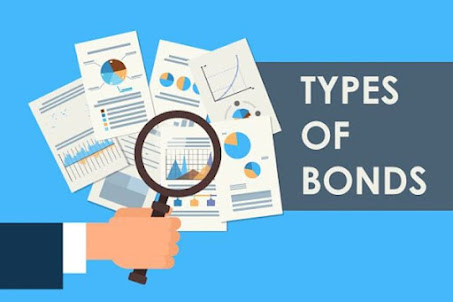Step by Step guide: How to buy bonds online in India?
Bonds are a great way to diversify your portfolio and build long-term wealth. However, with the rise of online trading, knowing how to buy bonds online can take time and effort. This article will help you navigate the process by providing a step-by-step guide on buying bonds online in India. Read on to find out more!
Introduction to Bonds
Bonds are a type of debt security in which the issuer – typically a corporation, government, or municipality – promises to pay periodic interest payments (coupons) and repay the face value of the bond at maturity.
Bonds are issued to raise money for various reasons, such as to finance capital expenditures or to fund working capital. The issuer sells the bonds to investors and uses the proceeds from the bond sale to finance its project or operation.
The main what are types of bonds traded in India are Government securities, corporate bonds, PSU Bonds (public sector undertakings), and tax-free bonds.
Government securities are issued by the Reserve Bank of India (RBI) on behalf of the Indian government. These include treasury bills (T-bills), dated securities, and floating-rate bonds. RBI occasionally also issues inflation-indexed bonds. T-bills have maturities of 91 days, 182 days, and 364 days and are issued at a discount to their face value. Dated securities have maturities ranging from 2 to 30 years, while floating rate bonds have a tenure of 7 years with interest payments linked to prevailing market rates. Inflation-indexed bonds have a maturity of 10 years, with coupon payments linked to inflation as measured by the consumer price index (CPI).
Companies issue corporate bonds to raise funds for their business operations. These typically have maturities ranging from 1 year to 10 years. PSU bonds are similar
Types of Bonds Available in India
There are many types of bonds available in India. The most common type of bond is the government bond, issued by the central or state governments. Government bonds are generally considered very safe investments since the full faith and credit of the Indian government backs them.
Other types of bonds available in India include:
- Private companies issue corporate bonds.
- Local governments issue municipal bonds.
- Foreign governments or corporations issue foreign bonds.
Corporate bonds tend to be riskier than government bonds but can offer higher returns. Municipal bonds are usually considered safe investments, although there is some risk that the local government may not be able to meet its financial obligations. Foreign bonds carry a higher degree of risk since there is no guarantee that the issuing entity will be able to make interest payments or repay the principal when it comes due.
How to Buy Bonds Online – Step-by-Step Guide
Bonds are a great investment option and can be bought online easily. Here is a step-by-step guide on how to purchase bonds online in India:
1) Research the different types of bonds available and decide which is right for you.
2) Compare the interest rates offered by different websites or companies.
3) Choose a website or company to purchase your bond.
4) Enter your personal and financial information on the website or company's online form.
5) Review the terms and conditions of the bond before making your purchase.
6) Make your payment and wait for your bond to be delivered.
What are the Benefits of Buying Bonds Online?
Bonds are a great way to invest your money and earn a fixed rate of return. Buying bonds online is a simple and convenient way to invest in bonds. You can purchase bonds directly from the issuer or through a broker.
There are many benefits of buying bonds online. You can get started with as little as $1,000. Bonds are a safe and stable investment. They offer a fixed rate of return, so you know exactly how much you will earn on your investment.
Bonds are also very flexible. You can choose to receive interest payments monthly, quarterly, or annually. And you can cash in your bonds at any time without penalty.
Purchasing bonds online is a great way to diversify your investment portfolio and earn a stable return on your investment.
Risks Involved in Buying Online Bonds
When you buy bonds online, you are exposed to certain risks. These include:
- Interest rate risk: This is the risk that the interest rate on your bonds will go up, and the value of your bonds will go down.
- Credit risk: This is the risk that the issuer of your bonds will default on their payments.
- Liquidity risk: This is the risk that you will not be able to sell your bonds when you want to.
These are just a few of the risks involved in buying online bonds. Before investing, ensure you understand all the risks and how they might affect your investment.
Tips for Safe Investment in Online Bond Trading
When it comes to investing in bonds online, there are a few things you need to keep in mind to make sure your investment is safe. Here are a few tips:
1. Do your research: Before investing in any bond, you must do your research. Make sure you understand the risks involved and the potential rewards.
2. Invest wisely: Don't Only more than afford to lose. Bonds are not without risk, and you could lose all of your investment if the market takes a turn for the worse.
3. Diversify: Don't put all your eggs in one basket. Invest in a variety of different bonds to spread out your risk.
4. Monitor your investments: Keep an eye on your bonds and their performance. You may want to sell them off and invest elsewhere if you see them losing value.
By following these tips, you can help ensure that your bond investment is safe.
Conclusion
Purchasing bonds online in India is a brilliant and convenient way to invest your hard-earned money. With the proper knowledge, anyone can buy bonds easily and securely from their home. This guide has given you a good overview of how to purchase bonds online in India and will help make your investment journey successful!


.jpg)
Comments
Post a Comment